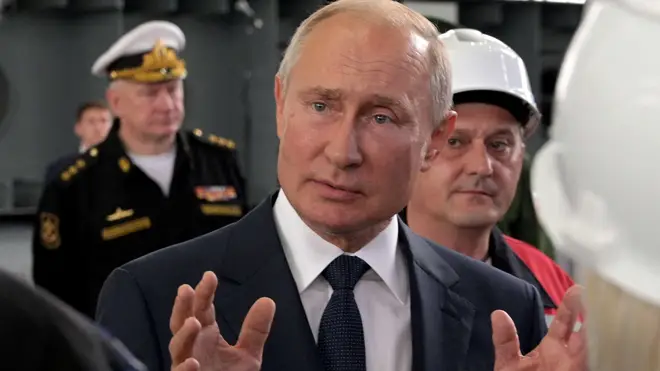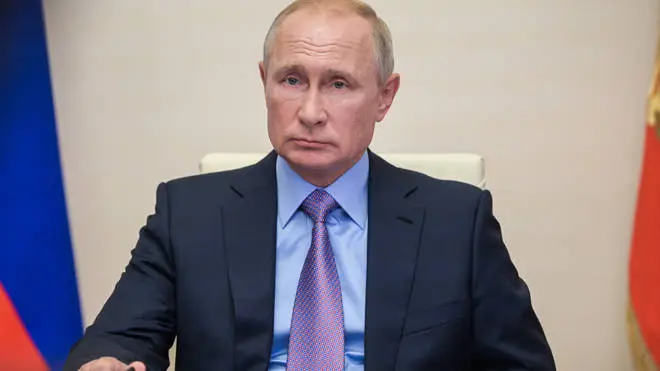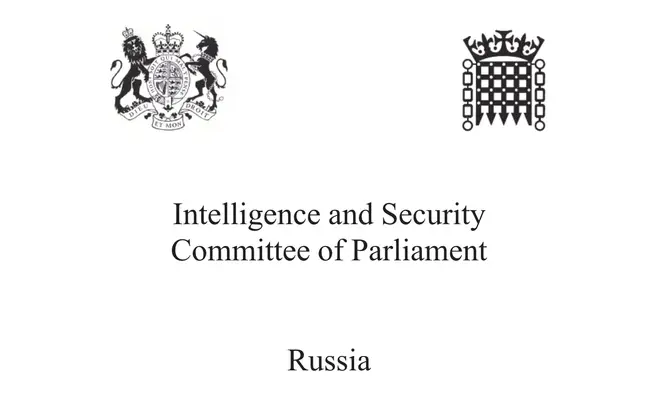
James O'Brien 10am - 1pm
21 July 2020, 15:28

The 'Russia Report' has laid bare serious concerns over Russian interference with the UK's internal affairs through online disinformation, espionage and disrupting democracy.
Russia poses a "significant threat to the UK" and its influence in Britain's corridors of power has become "the new normal," according to the Intelligence and Security Committee (ISC) report.
Espionage, interference in democracy and serious crime were among the key threats uncovered by the report, which highlighted Russia's cyber capability and its "willingness to deploy it in a malicious capacity."
The report said the findings were of "grave concern" and added that Russia "poses an immediate and urgent threat to our national security. It also said that the government failed to act to assess and counter the threat Russia posed to the Scottish independence vote, and that the UK failed to monitor any possible Russian influence on the Brexit referendum.
So, what do these findings mean for the Government, its agencies and our use of social media?

Ben Kentish explainer of the Russia report
The Russia Report is an investigation by the Intelligence and Security Committee that has looked into Russian interference in UK affairs.
After months of delays, it was published on Tuesday despite being ready since October 2019.
The report is based on secret material from Britain's intelligence agencies and has outlined the threat Russia poses to the UK, as well as efforts to counter it.
Its publication was delayed by Prime Minister Boris Johnson calling last year's December general election and by the need to re-establish the committee.

• One of the key points to take away from the investigation is that Russian interference in the UK's domestic affairs is now "the new normal". This, it found, was due to the number of Russians with "very close links" to President Vladimir Putin who are "well integrated into the UK business and social scene."
• It also explained that Russia represents an "established threat" to the UK, which is one the Moscow's "top Western intelligence targets" for "disinformation campaigns and political influence operations."
• The ISC report said the UK Government is "playing catch up" to the threat posed by Russia after it "badly underestimated" the response required.
• It also accused organisations within the UK's intelligence community of playing "hot potato" with the responsibility for defending the UK's democratic process from interference.
• Links between the House of Lords and Russia require "careful scrutiny" due to the potential for Russia to "exploit" them, the report said.
• While social media companies should face the threat of being "named and shamed" by the UK Government if they fail to show "they take covert hostile state use of their platforms seriously."
• The committee also found there had been "credible open-source commentary" that suggested Russia tried to influence the Scottish independence referendum in 2014. However, it said assessing allegations that Russia sought to influence the 2016 EU referendum would be "difficult - if not impossible", with the ISC not seeking to do so, as it had not received any post-EU referendum assessment of Russian attempts at interference.

Bill Browder gives his reaction to the release of the Russia Report
Russia's Foreign Ministry has branded the report "Russophobia," whereas a Kremlin spokesman said Russia does not interfere in other countries' elections.
Meanwhile, No 10 insisted it had not "badly underestimated" the threat posed by Russia.
UK Foreign Secretary Dominic Raab tweeted: "We've been clear that Russia must desist from its attacks on the UK and our allies.
"We will be resolute in defending our country, our democracy and our values from such Hostile State."
The ISC's former chair, Dominic Grieve - who had urged the Government to publish the report before last year's election - said that although he was pleased to see it come to light, that feeling was "mitigated by a sense of frustration and, bluntly, anger at the way the government behaved."
Labour's Shadow Foreign Secretary Lisa Nandy accused Boris Johnson of taking a "political decision" to block the publication of the report.
She said: "The government has underestimated the response required to Russia and it is imperative we learn the lessons from the mistakes that have been made."
We’ve been clear that Russia must desist from its attacks on the UK & our allies. We will be resolute in defending our country, our democracy & our values from such Hostile State Activity. See the Government’s full response to the ISC Russia report here 👇 https://t.co/KeMklHFowa
— Dominic Raab (@DominicRaab) July 21, 2020
The investigation revealed the Kremlin's widely-reported attempts to disrupt overseas elections through the use of bots and trolls on the likes of Twitter and Facebook, as well as "hack and leak" operations linked to the 2016 US presidential election.
Social media companies have been told to step up and remove covert hostile state material, otherwise they should be named and shamed for failing to act, the ISC said.
"It is the social media companies who hold the key but are failing to play their part," the report states.
However, the committee said that it was "surprisingly difficult" to establish who has responsibility for what during its investigation.
No one organisation considers itself to be in the lead, or apparently willing to conduct an assessment of such interference, a position the committee wants to see changed.
The ISC also believes MI5 should have an operational role, utilising the relationship already built with social media companies when dealing with terrorist content on their platforms.
Facebook has declined to comment and Twitter is yet to respond.

The ISC report called for a UK assessment to be carried out into potential Russian interference in the EU referendum.
It added that the UK's paper-based voting system is "largely sound" and makes "significant interference difficult", however Britain should not be "complacent" about other interference.
Links between Russia and the House of Lords demand scrutiny, it found, while social media companies should be "named and shamed" if they do not take the threat of Russian disinformation seriously.
The ISC said new laws were needed to give the UK's intelligence community the "tools" it needs to "tackle espionage, the illicit financial dealings of the Russian elite and the 'enablers' who support this activity."
It also called on the UK's international allies to reach a "consensus" on "Russian aggressive action" to find the best way to "attach a cost to Putin's actions," as the UK sought to do in response to the Salisbury Novichok poisoning in 2018.